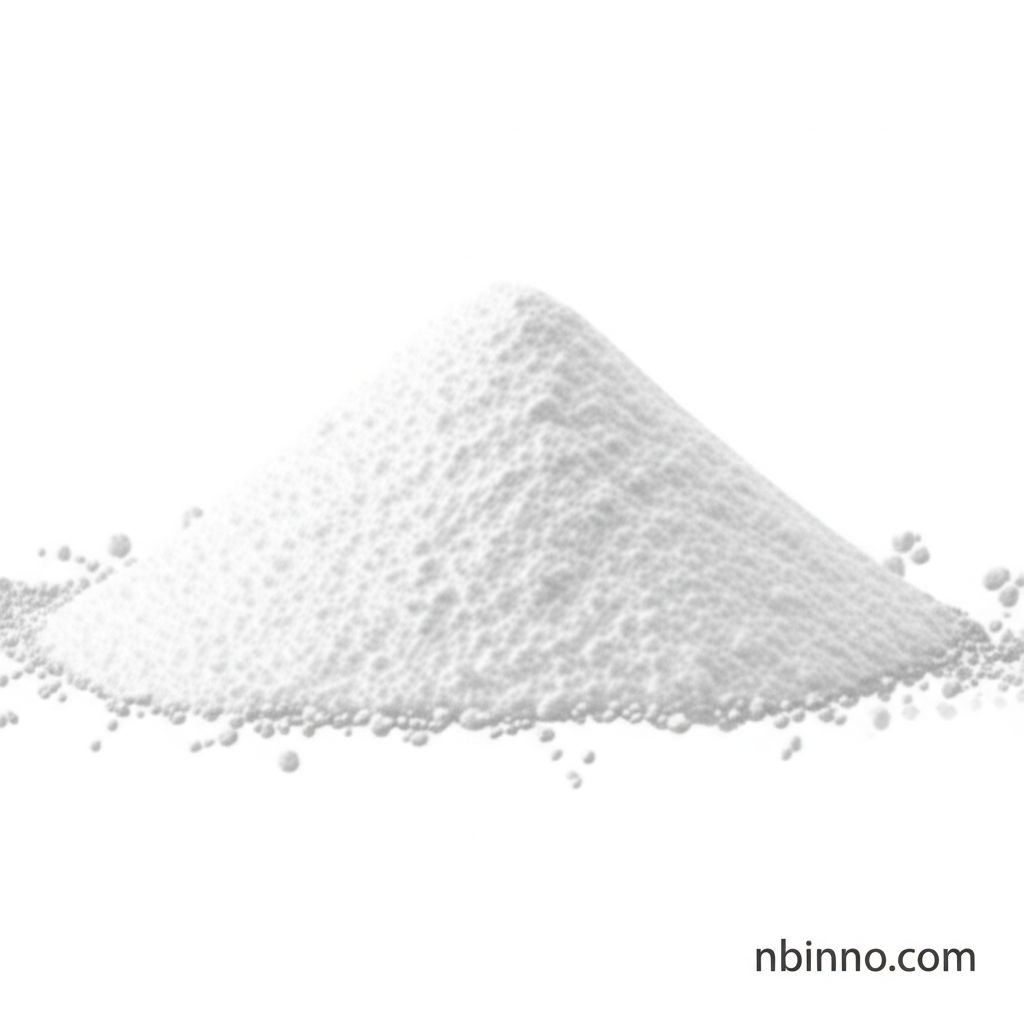Magnesium Stearate: Properties, Applications, and Manufacturing Significance
A deep dive into the essential excipient that streamlines production and ensures quality in pharmaceuticals, cosmetics, and food.
Get a Quote & SampleProduct Core Value

Magnesium Stearate
Magnesium Stearate is a vital compound primarily utilized as a lubricant and anti-caking agent in numerous industries. Its ability to prevent ingredients from sticking to machinery ensures efficient production processes for pharmaceuticals and supplements. It also plays a role in cosmetics and food manufacturing, enhancing texture and stability.
- Understand the multifaceted uses of magnesium stearate in pharmaceuticals, where it acts as a critical flow agent, preventing capsule ingredients from adhering to equipment and improving overall product consistency.
- Explore the benefits of magnesium stearate in supplements, noting its role in ensuring uniform blending and proper nutrient release, contributing to better absorption.
- Learn about magnesium stearate cosmetic applications, including its function as a texturizing agent and emulsifier that improves product feel and stability.
- Discover how magnesium stearate is made, typically through neutralization of stearic acid with magnesium oxide or hydroxide, resulting in a fine white powder.
Key Advantages
Enhanced Manufacturing Efficiency
As a premier lubricant for tablets, Magnesium Stearate significantly reduces friction during tablet compression, preventing adherence to machinery and ensuring smooth, high-volume production runs. This makes it an indispensable component for any pharmaceutical manufacturer aiming for operational excellence.
Ensured Product Quality and Stability
Magnesium Stearate acts as an effective anti-caking agent, maintaining the free-flowing nature of powders. This property is crucial in dietary supplements and powdered foods to prevent clumping, ensuring uniform dosage and consistent product quality from batch to batch.
Broad Regulatory Acceptance
With its CAS 557-04-0 designation, Magnesium Stearate is broadly recognized as safe (GRAS) by regulatory bodies like the FDA and EFSA. This wide acceptance allows for its seamless integration into a vast array of products without extensive regulatory hurdles.
Key Applications
Pharmaceuticals
Essential as an excipient in tablet and capsule manufacturing, Magnesium Stearate ensures smooth processing and prevents sticking, contributing to the reliable delivery of medications.
Cosmetics
In the cosmetic industry, it functions as a texturizing agent, lubricant, and anti-caking agent, improving the feel and consistency of products like pressed powders and makeup.
Food Industry
Used as a food additive, it acts as a flow enhancer, binder, and anti-caking agent, particularly in confectionery and powdered mixes, enhancing product stability and ease of use.
Nutraceuticals
Vital for the production of dietary supplements, Magnesium Stearate aids in the uniform blending of ingredients and facilitates better nutrient absorption, supporting overall health product efficacy.
